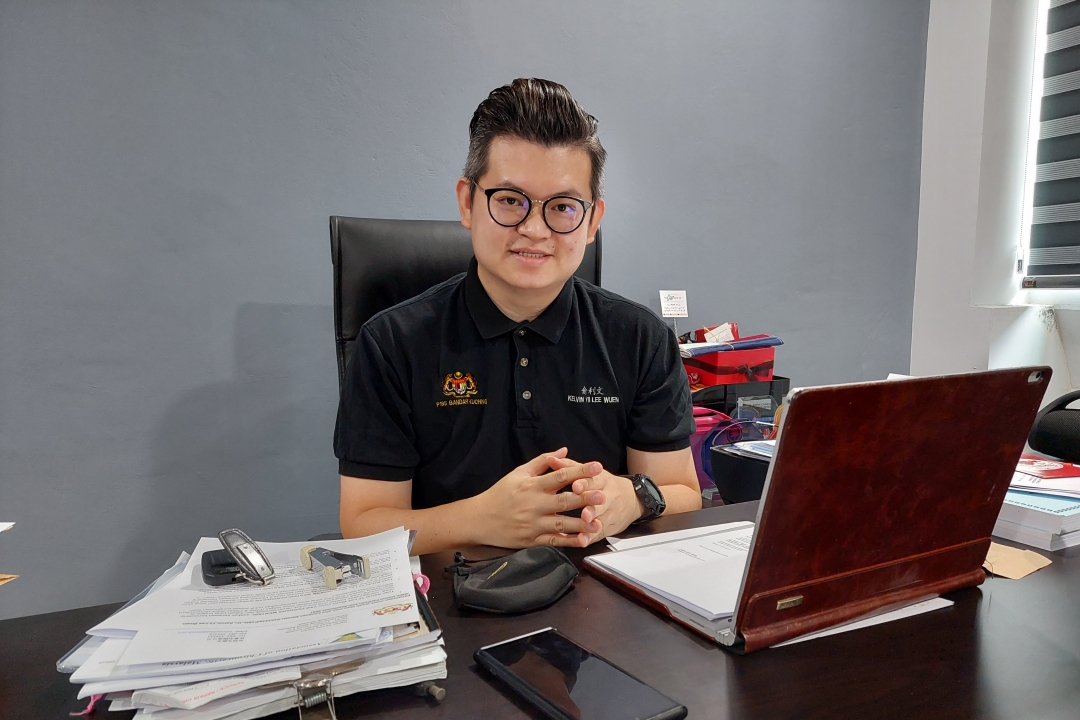
Dr Kelvin Yii said that the government should take the current threat of the disease with travel requirements as temporary emergency measures against the surging infections there.
KUCHING (Dec 30): Bandar Kuching MP Dr Kelvin Yii is calling on the government to put up travel requirements for travellers entering the country from China due to the current surge of Covid-19 in China.
He said that the government should take the current threat of the disease with travel requirements as temporary emergency measures against the surging infections there.
This is important to better protect the people as well as prevent another crisis that may overwhelm the country’s healthcare system, he stressed.
“We have seen how different countries including Japan, USA, Italy, South Korea and India imposing certain forms of requirements for travellers from China especially after the World Health Organisation (WHO) said it was very concerned about rising reports of severe cases across China after the country largely abandoned its ‘zero-Covid’ policy.
“I believe the Malaysian government should also consider some restrictions to prevent rapid increase of infections in this country while balancing the economic need and livelihoods especially for essential travels,” he said in a statement yesterday.
His suggestions for entry requirements include for travellers to be vaccinated (types of vaccine accepted have to be decided), and doing a Rt-PCR test at least two days before travel. Upon arrival, a routine RTK-Ag testing to be carried out, and those who test positive will be quarantined for seven days at designated facilities and their samples will be used for genome analysis.
Apart from that, those intending to travel to China must also be encouraged to get boosted, and try to postpone any non-essential travels, he said.
At the same time, crisis preparedness must be heightened and healthcare facilities and human resource around the country must be empowered in case of any eventuality, he added.
“There must be clear data on ICU beds availability and Emergency Department contingency preparedness in case of a surge in cases.”
The government must also further encourage the public to mask up especially indoors and highly congested areas. This is even so especially in view of New Year celebration events that may cause a rise of cases locally, he added.
“I am not in favour of a strict mask mandate where high fines are being imposed, but the government must effectively communicate the importance of masking and preparing the public for any eventuality.
“The government should also encourage the public to optimise their protection against Covid-19 through the booster shots. While I understand there is currently low uptake among the public, but once they understand the urgency due to the situation in China, this may change and the government must be prepared. The government should also consider the purchase of bi-valent vaccines as an option, which may deal with some hesitancy among people.”
There also must be an audit on all antiviral medications stocks such as Paxlovid, Remdesivir or Evusheld for Covid-19 and allocate to possible higher risk areas especially health facilities in point of entry or in high risk outbreak areas, he said.
The Ministry of Health can do a comprehensive modelling as well as estimate how many patients may require these medications and make decisions on further procurements based on that data, he added.
The Covid-19 Inter-Agency Taskforce must also be on standby for any eventuality in order to boost public health emergency preparedness, prevention, and response against current and ongoing health threats such as Covid-19, said Yii.
While many of these are difficult but important decisions to be made especially in balancing the need to protect lives and livelihood and help spur the economy, but the government must be proactive and prepared for any eventuality, he pointed out.
“All these measures must be communicated well, and all efforts done must be transparent to build public confidence which is important in any public health crisis. We must learn from our experience and be proactive rather than only reactive when a crisis emerges.”
